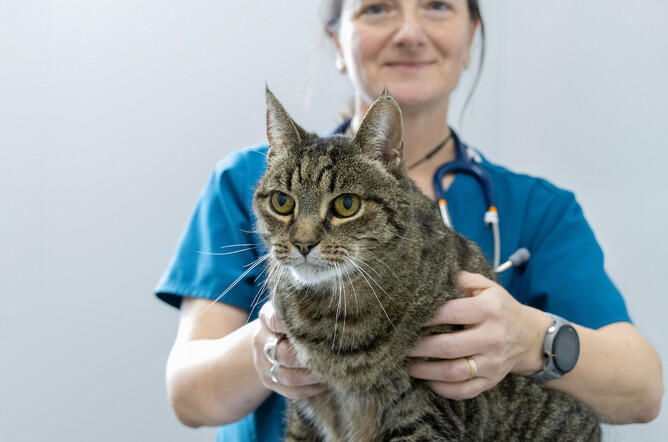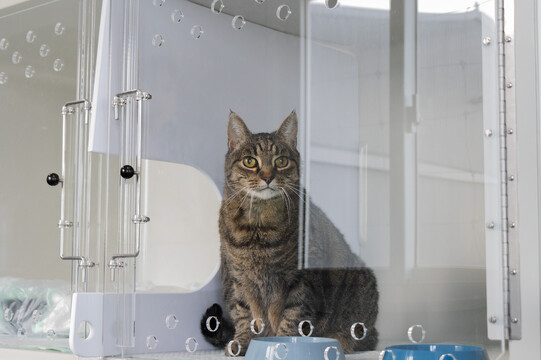Southland cat owners can breathe a little easier with the launch of the new Radioactive Iodine Treatment centre for feline hyperthyroidism at our Invercargill clinic.
If your cat has been diagnosed with hyperthyroidism, you may have found your options fairly limited in the past. Not to mention costly, finicky, and time consuming. Now that’s set to change with our brand new, purpose-built facility – the only one of its kind south of Christchurch.
The gold standard of treatment
There’s a reason radioactive iodine treatment is considered the gold standard: it has a high success rate and requires just one treatment. In most cases, it’s the only way of curing this condition. While medication or surgery are also options, radioactive therapy is non-invasive and targets the overactive thyroid tissue directly, leaving healthy tissue untouched. Most cats respond beautifully to treatment, with no ongoing medication needed.
What is feline hyperthyroidism?
Hyperthyroidism is a common disease of older cats, caused by enlargement of the thyroid gland in the neck. The abnormal gland secretes excess thyroid hormone, causing the cat to lose weight despite a good appetite. Patients will often have a poor hair coat, be irritable or hyperactive, and may drink more as well. The disease can also affect the kidneys and heart. Fortunately, hyperthyroidism can be diagnosed with a simple in-house blood test.
Problems with other treatments
A range of treatment options are possible for hyperthyroidism, including medications and diet. However, cats being cats often won’t eat the diet and will put up a good fight to being medicated.
Why local matters
Previously, Southland cat owners faced a lengthy trip to Christchurch for treatment – adding cost, time, and stress to an already emotional experience. Travel can be tough on cats, particularly when they’re already unwell. For owners, the logistics of a long trip (often involving overnight stays or flights) and being apart from their kitty for an extended period is challenging.
One injection and a short stay
The treatment consists of a simple injection that doesn’t require anaesthesia. A single dose is effective in 95% of treated cats. The iodine concentrates in the diseased thyroid gland, destroying the overactive cells. Moreover, radioactive iodine is generally well tolerated and is not associated with serious side effects.
After treatment, cats stay in our dedicated feline treatment ward for a total of eleven days, where they are cared for and closely monitored by our specialist radiation medicine team of vets and vet nurses. Cats are admitted on Monday, receive treatment on Tuesday, and return home the following Friday.
Cats may be referred for treatment by a vet in our VetSouth team or by their regular vet from another veterinary clinic. Before treatment, hyperthyroid patients must be medically stabilised. To determine eligibility, your cat’s veterinarian will need to perform a few simple tests, including blood and urine analysis.


